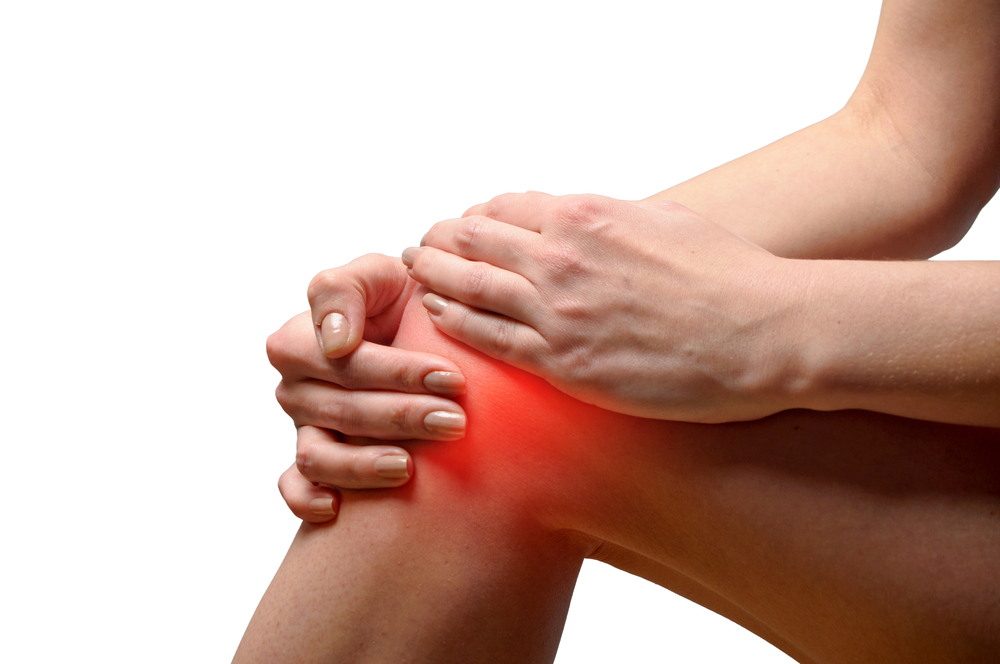If you are one of the millions of Americans who suffer from some type of joint pain, you may be wondering about seeing Southwest orthopedic specialists. Could this be the answer to alleviating your discomfort and helping you to regain normal function? At Mattalino Orthopaedic in Phoenix, AZ, we are happy to help you cut through the mountains of available information. We’ll break it down so you clearly understand only what you need to know about your specific condition and what treatment options are available that could help to improve your joint pain.
What Conditions Can Cause Joint Pain?
Joint pain is one of the most common ailments reported to physicians. While most of us will experience some minor joint discomfort as a regular part of aging, there are some conditions that can cause more severe symptoms such as pain and swelling. Other than simple things like unpredictable and sudden changes in the weather or yearly seasonal changes, or obvious causes such as an injury or strenuous activity, there are several potential causes of aching joints:
- Osteoarthritis
- Rheumatoid Arthritis
- Psoriatic Arthritis
- Gout
- Lupus
- Fibromyalgia
- Lyme Disease
- Hypothyroidism
Any of these conditions can cause joint pain and other symptoms, and only your doctor can determine which, if any, of them you may be suffering from.
Osteoarthritis
Osteoarthritis, which is caused by the breakdown of cartilage between the joints, is the most common form of arthritis with over 20 million people suffering its effects. Osteoarthritis can be caused by overuse of a joint, such as from playing a certain sport for many years. Being overweight can contribute to it as well. Symptoms can include joint pain, tenderness, stiffness, and inflammation (swelling).
Rheumatoid Arthritis
Rheumatoid arthritis commonly affects the small joints in the hands and wrists, although it can show up in other joints as well. These joints may often feel warm to the touch. In some cases, rheumatoid arthritis can cause disfiguring changes to the joints.
Psoriatic Arthritis
Psoriatic arthritis is caused by an immune-system response in which the body attacks the joints. It can be accompanied by a skin condition called psoriasis. Psoriatic arthritis causes painful inflammation in the joints.
Gout
Gout is a condition that is also a form of arthritis. It causes acute pain and usually starts in the big toe; the inflammation then spreads to other joints. High levels of uric acid in the blood is the cause of gout.
Lupus
Another autoimmune disease that can cause aching joints is lupus. Symptoms most frequently appear in the extremities and can include joint pain with swollen and stiff joints.
Fibromyalgia
Women who are overweight and already have another form of arthritis are most likely to experience fibromyalgia. It is characterized by sudden occurrences of fatigue, joint pain, and muscle pain.
Lyme Disease
Lyme Disease is spread by ticks and manifests as joint pain. See a physician immediately if you suspect you have received a bite from a tick.
Hypothyroidism
Hypothyroidism is a condition which is found mostly in women, It is the result of an underactive thyroid gland and can cause redness and swelling at the joints, joint pain and stiffness, and even carpal tunnel syndrome.
How Is Joint Pain Commonly Treated?
There is no one-size-fits-all therapy for joint pain. If your pain and swelling are caused by certain conditions such as arthritis or lupus, you may respond well to prescription or over-the-counter medications and aids such as creams or other topicals to reduce symptoms or to other treatments specific to your condition or disease.
If, however, your joint pain is progressing, severe, and unresponsive to medication and/or topical therapy, or if you have suffered some type of trauma to one or more joints, a joint replacement or other surgery may be an option. To determine the specific condition that is causing your joint pain, which therapy will or will not work for you, and whether or not you may be a candidate for any surgical options requires examination and diagnosis by a qualified joint-pain specialist.
If you are suffering from any type of ongoing or unexplained joint pain, it is important that you seek out the advice of a physician, one who is extensively trained in and has years of experience with treating the many causes and treatments of the various types of joint pain. The joint-pain specialist you choose will depend on what type of symptoms you have.
Joint-Pain Specialists
If you are a patient looking for help with your joint pain, the first step is to visit your family physician for an examination and initial diagnosis. Once your physician has determined the source of your joint pain, he or she may refer you to a specialist for further treatment.
There are two types of medical specialists who may be able to help: a rheumatologist and an orthopedic surgeon. While both of these specialty physicians are extensively trained in their respective fields, they treat different types of joint-pain conditions.
Rheumatologist
A rheumatologist is a trained and board-certified physician or pediatrician who specializes in the non-surgical treatment of joint pain. They are trained in the diagnosis and treatment of systemic forms of arthritis and autoimmune disorders and other musculoskeletal ailments that can cause pain, stiffness, deformity, and swelling in the muscles, joints, and bones.
Rheumatologists commonly treat non-arthritic diseases such as lupus, fibromyalgia, and Sjogren’s syndrome, in addition to many others. If non-surgical treatment is unsuccessful or if your condition progresses beyond the abilities of non-surgical therapy, your rheumatologist may refer you to an orthopedic doctor for further evaluation and treatment.
Orthopedic Surgeon
An orthopedist specialist, or Southwest orthopedic specialists, is also a trained and board-certified physician whose primary professional focus is the prevention, diagnosis, and treatment of disorders of the bones, joints, tendons, muscles, and ligaments. While some orthopedic surgeons limit their scope to hip and ankle, foot and knee, shoulder and elbow, hand, or spine treatments, others prefer to generalize their practice,
Whatever the area of expertise, an orthopedic surgeon can provide treatment for any musculoskeletal trauma to the body, as well as treatment of the more advanced effects of osteoarthritis.
Patients of any age group can receive treatments for spinal conditions, sports injuries, and fractures, along with joint replacements and many other musculoskeletal issues such as bone tumors, spinal stenosis, scoliosis, limb lengthening, club foot, carpal tunnel, and other ailments and conditions. Southwest orthopedic specialists offer non-surgical treatment of joint pain as well as more advanced treatment methods and surgical options to treat joint-pain symptoms.
Which Specialist Do I Need?
While both rheumatologists and Southwest orthopedic specialists can treat joint-pain symptoms, it may be in the patient’s best interest to take a closer look at both options before deciding which specialist can best serve their needs. In cases where there is a family history of rheumatoid arthritis, for example, it would be perfectly logical and reasonable for a patient to seek out a consultation with a rheumatologist.
If, however, there is a family history of knee replacements and the patient is suffering from intractable knee pain, a better choice would be an Southwest orthopedic specialists. But how do you know which one makes the best sense for you?
Choosing a specialist does not mean you have made a permanent, unchangeable choice. If a patient seeking treatment from a rheumatologist does not improve with therapy, or as a patient’s condition progresses over time, there may be a need for some overlap in care from a rheumatologist to an orthopedic surgeon. In the beginning, however, the choice of which specialist to see will be primarily determined by the patient’s current and/or ongoing symptoms.
When to Choose a Rheumatologist
You should consider seeing a rheumatologist if you have:
- Pain involving multiple joints
- New joint pain not associated with an injury
- Joint or musculoskeletal pain in conjunction with fever, morning pain, rash, fatigue, or chest pain
- Joint pain following a tick bite
- Joint pain with back pain
- Joint pain with psoriasis
- Muscular pain with or without other symptoms
- Muscle aches and new or recurring headaches (over age 50)
- Back pain with or without leg pain
- Ongoing symptoms such as fever, sweats, or weight loss that are unexplained
When to Choose an Orthopedic Surgeon
You should consider seeing an orthopedist if you have:
- Joint or muscle pain following an injury
- Pain in the knees or hips that is ongoing and worsens with walking or other weight-bearing activity
- Severe joint pain that interferes with normal functioning
- Moderate or advanced arthritis of the hips or knees
- Joint pain that has been unsuccessfully treated previously
- Have been told you might need a joint replacement
Why Not Just See My Regular Family Doctor?
Receiving treatment that is tailored to your specific condition and pain picture is a vitally important part of improving the chances of securing a favorable prognosis and outcome. The specialist you choose, whether a rheumatologist or a Southwest orthopedic specialist, is experienced in your illness, your particular type of joint pain, and the best therapies available for treatment. Your symptoms are a major factor in choosing a specialist, but other factors, including family medical history and personal circumstances, will ultimately dictate which specialist you choose to visit.
It is also important to keep in mind that there is more to treating joint pain than just finding a qualified expert. Choosing Southwest orthopedic specialists that understands you, your individual situation, and your treatment goals can be extremely beneficial to your treatment course. Whether you simply want treatment for your pain, or if you are eager to get back to your fitness training or sport at your previous level or even higher, the specialist you choose should be an actively-engaged participant in your treatment and recovery until you are satisfied with the results.
Working with a qualified, well-trained, and experienced joint-pain physician can also help you get better faster. Having a wealth of knowledge and experience in your corner can keep your confidence high and your mind focused on regaining your health. This means you can shift your main focus off of your pain and back to the day-to-day activities of your life, which can be very helpful in the treatment process.
Are You Ready to See an Orthopedic Doctor?
If you are ready to get help with your joint pain, call us at Mattalino Orthopaedic in Phoenix, AZ today to schedule your initial consultation. Together we will discuss your symptoms, answer your questions, and devise a plan to treat your joint-pain issues so you can return to the very important business of being you.


